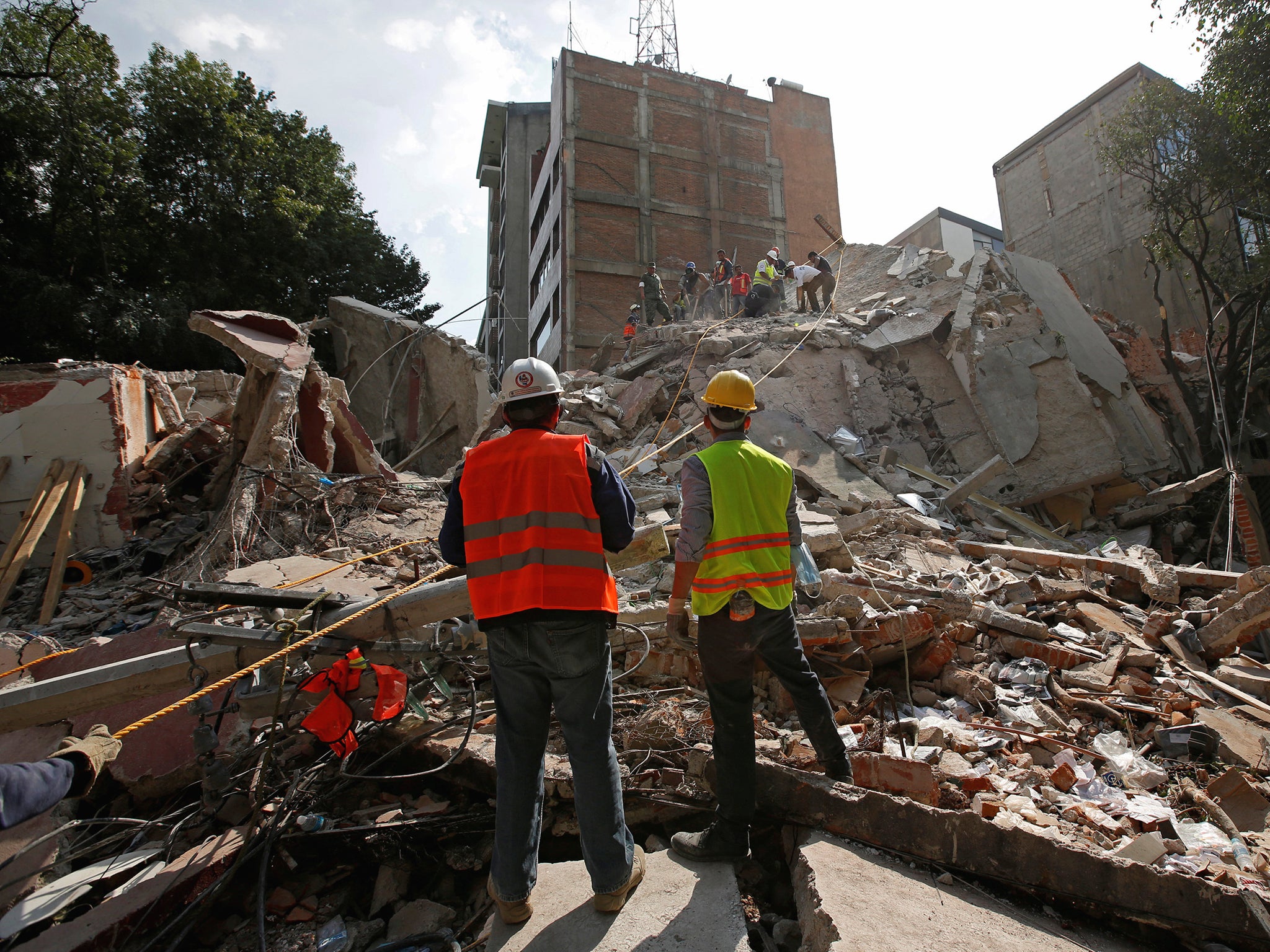The US has an obligation to support Mexico in the aftermath of the earthquake
America can and should do more to assist its southern neighbour: medical and rescue help now, reconstruction and advice on building design later, greater flows of trade and investment too

Your support helps us to tell the story
From reproductive rights to climate change to Big Tech, The Independent is on the ground when the story is developing. Whether it's investigating the financials of Elon Musk's pro-Trump PAC or producing our latest documentary, 'The A Word', which shines a light on the American women fighting for reproductive rights, we know how important it is to parse out the facts from the messaging.
At such a critical moment in US history, we need reporters on the ground. Your donation allows us to keep sending journalists to speak to both sides of the story.
The Independent is trusted by Americans across the entire political spectrum. And unlike many other quality news outlets, we choose not to lock Americans out of our reporting and analysis with paywalls. We believe quality journalism should be available to everyone, paid for by those who can afford it.
Your support makes all the difference.It was a poignant coincidence that the latest devastating earthquake to hit Mexico – the second in a few weeks – came on the anniversary of the 1985 quake. That shock caused anything from 5,000 to 45,000 deaths (the toll is still contested), far in excess of the scale of loss of life this time, with the earthquake now centred some distance from the densely populated Mexico City. Even so, it is a desperately tragic event that has taken the lives of so many, including dozens of children in a primary school.
There is nothing Mexico can do about its location on the Pacific “ring of fire”. Nor, in practical terms, is there much that can be done about the location of the capital city and its 20 million inhabitants.
Built on an old lake bed, the heavy clay makes for difficulties in laying stable foundations, and is literally an unstable base for a megapolis. Traditionally, low-rise and colonial-era buildings tend to survive such shocks, as do very high-rise commercial structures with very deep foundations. Medium-rise housing, schools, hospitals and retail malls seem more vulnerable.
It is also true, as witnessed in Japan, Italy and New Zealand in recent years, that even the richest societies cannot entirely protect their people from such natural disasters. The hurricanes lashing their way through the Caribbean and the southern United States make the same forceful point.
Yet after every such episode there will be lessons to learned and questions, in this case, about whether past errors uncovered in the 1985 disaster were properly addressed in building standards and materials, particularly in schools.
The more immediate priority is disaster relief in a situation where millions now lack power or shelter. It was refreshing to see President Trump respond rapidly with an uncharacteristically generous tweet about helping his southern neighbour.
It is worth wondering, in the wider context of US-Mexico relations, what the point is of sending Mexico the bill for building Mr Trump’s absurd border wall and slapping tariffs on Mexican exports. An emerging economy, still dealing with a huge drug crime problem and endemic poverty, Mexico has vast potential but a corresponding need for investment. America can and should do more to assist its southern neighbour: medical and rescue help now, reconstruction and advice on building design later, greater flows of trade and investment too.
At the United Nations this week Mr Trump spoke approvingly of the Marshall Plan that assisted Europe to recover after the Second World War – and to become a prosperous ally of America. It would be in America’s own interests in just the same way to assist and trade with Mexico, rather than indulge in a futile attempt to brick a whole country off.
This disaster comes as world leaders gather at the UN, and there is thus an opportunity for them to make a united effort to help a member state in distress, and to move from words of sympathy to financial and practical help. A chance, then, for Mr Trump to balance his promise to “destroy” one nation and with action this day to help reconstruct another. After all, he does know something about the construction business.
Join our commenting forum
Join thought-provoking conversations, follow other Independent readers and see their replies
Comments